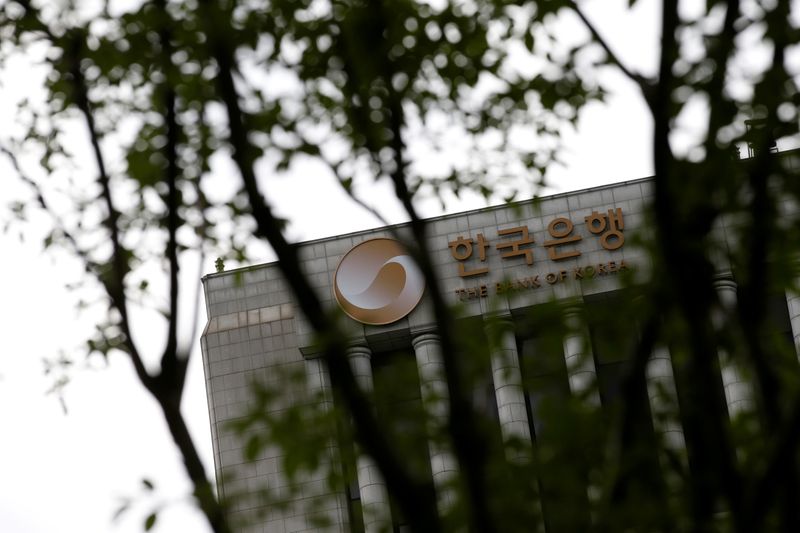
© Reuters. FILE PHOTO: The logo of the Bank of Korea is seen on the top of its building in Seoul, South Korea, July 14, 2016. REUTERS/Kim Hong-Ji/File Photo
By Cynthia Kim and Joori Roh
SEOUL (Reuters) -South Korea’s central bank on Wednesday nominated an economist with expertise in macro-economic policies to join the bank’s seven-member board, as it considers further policy tightening to shift away from pandemic-era monetary settings.
Park Ki-young, 50, replaces Koh Seung-beom, who left the board in early August to head the Financial Services Commission regulatory body. Park will serve until April 20, 2023, when Koh’s term was due to end.
The announcement comes with the bank trimming its pandemic-era stimulus as price pressures build and as policymakers worry that household debt could become unsustainable, damaging people’s purchasing power and long-term growth.
“Park’s recent work touches on climate change, text-mining, which are of interest to the bank, as well research into policy ideas. He has also analysed the bank’s minutes from policy meetings using data mining and has researched household debt, among other (issues),” a BOK official said after the announcement.
Many market participants have expected Governor Lee Ju-yeol to tap someone with a hawkish bent as Koh was one of the main hawks on the board who argued the BOK should hike rates to address growing financial imbalances.
Once formally appointed by President Moon Jae-in, Park will become the youngest member of the seven-member board and will vote at the bank’s next rate review meeting on Oct. 12.
Wednesday’s announcement surprised many in financial markets as more experienced, better known economists including Kim Jin-ill of Korea University and ex-vice finance minister Kim Yong-beom were widely mentioned in the media as potential candidates.
Park was briefly a BOK official in 1999 before he pursued further studies at The University of Maryland in the United States.
Both Governor Lee and Park attended Yonsei University of South Korea for undergraduates, majoring in economics.
The Bank of Korea raised its policy rate by 25 basis points to 0.75% in August, the first hike in almost three years and the first major Asian central bank to shift away from pandemic-era monetary stimulus.
Source: Investing.com


























